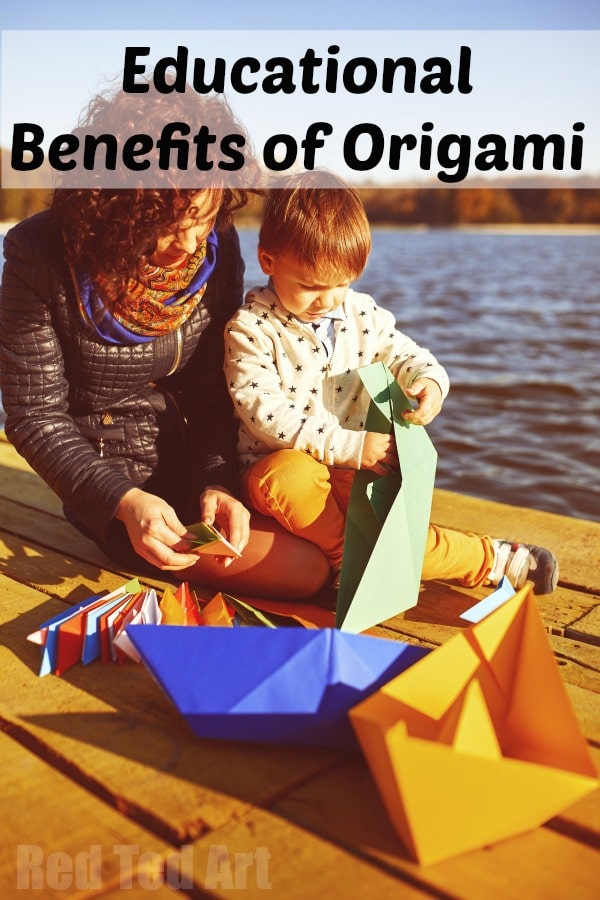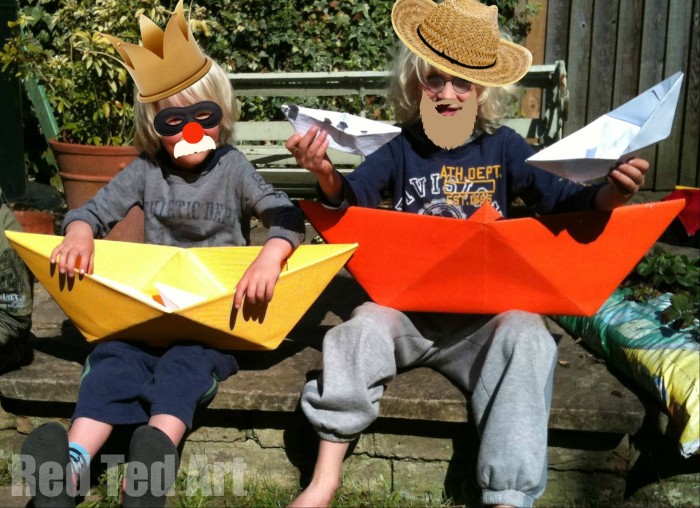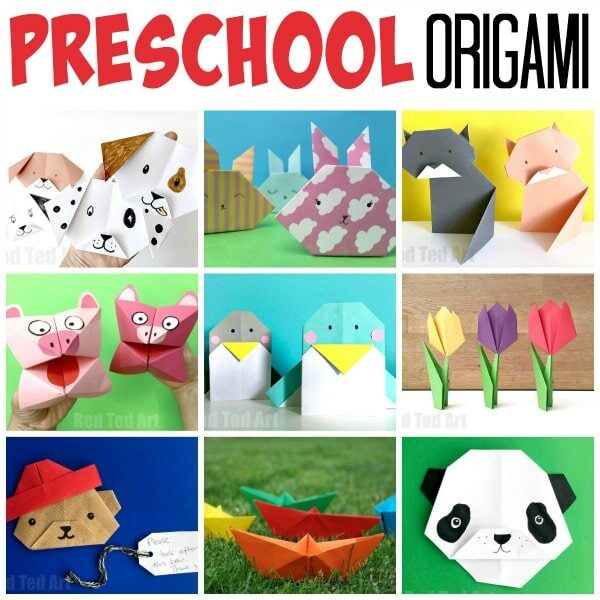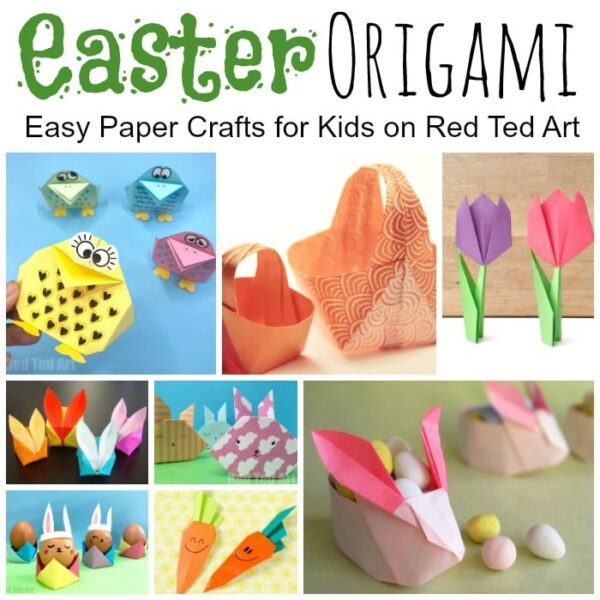Educational Benefits of Origami
As you know, we adore Origami for Kids – we love the magic of turning a piece of paper into something useful or a toy or a pretty decoration. This is the most exciting of all Paper Crafts. No scissors. No glue. Origami is fascinating, that one square of paper can be turned into so many things. But not only is Origami for kids fun, there are also huge educational benefits of origami for kids and adults alike.

These Benefits of Origami were shared in May 2018 and republished for convenience!
I will list the MAIN benefits of Origami below and hopefully they will persuade you to give it a go soon!!! And it is never too early to start – preschoolers can benefit from Origami as much as older kids.
Why is Origami good for you?
In a nutshell, Origami is good for you as it develops –
- eye hand co-ordination,
- sequencing skills,
- maths reasoning,
- spatial skills,
- memory, but also patience and attention skills
- Origami allows you to develop fine motor skills and
- mental concentration.
All of this combined stimulates the brain – especially when BOTH hands are being used at the same time.
Add to these, the social aspects of Origami –
- learning about other cultures,
- working together,
- teaching each other and
- taking pride in your work..
…then Origami becomes a “no brainer” in education for kids.
Origami is also often used in therapeutic settings.
What age is good for Origami?
Origami can be learnt at any age. Young children will suprise you in the ability they show creating basic folds – start preschoolers on origami patterns such as easy Origami Tulips or easy Origami Dogs. These are great project to start off with, as the folds are relatively simple – but still encourage spacial recognition as well as symmetry. They are “short” project so children only have to remember a few steps.
But do not underestimate them.. children’s memories are like sponges and you can soon add to the sequencing. Fortune Tellers and Paper Boats are a classic example of childhood origami projects! And you can quickly progress from there.
Oh.. and what childhood does NOT include a Paper Plane? Origami right there! I love this Origami Paper Plane video by my then 7yr old. Not only did Origami inspire him to learn a skill (i.e. origami) but also inspired him to have a go an teach others.
Similarly, you are never too old to learn Origami – whether you are a young adult or heading into retirement, everyone can learn and WILL benefit from origami and the “brain exercise” it gives you.
A super popular project on Red Ted Art answers the question of How do you make an origami bookmark? Not only are you learning a basic origami folding sequence but these Corner Bookmarks also allow your creativity to flourish too!
How is Origami good for Maths?
Origami IS maths. There are so many mathematical aspects to origami – including:
- Symmetry (the majority of origami patterns require symmetrical work)
- Measurement, Fractions & Proportions (are you making a fold 2/3 of the way up? or half way)
- Geometry (are you folding into a triangle or a square)
- 3D Comprehension
- Sequencing
- Problem Solving
How does Origami Benefit Well Being & Social Skills?
As mentioned Origam is often used in therapeutic environments.
Yes, I have seen origami frustrate a person (when can’t quite get it right), but once they do… oh the sence of achievement is amazing. The process to get to that achievement requires people to learn to be patient, take their time and if necessary try again.
It is also fantastic for cooperative learning – children learn to work together and support each other. It breaks down age barriers – an older child may be able to teach a younger one.
As mentioned previously it is also a great way to learn about other cultures and communities.
So the key aspects of Origami benefiting well being and social skills are:
- Patience
- Cooperative learning/ Working in together
- Sence of achievement
- Learning about other cultures
- Community building (especially if working on an origami school project)
- Sense of achievement & joy in the finished product
If working on Origami at home – it is a wonderful way for children and parents to bond!
How does Origami Beneift your Brain and Mind?
(photo sourced from Deposit photo)
If you start thinking about the power of Origami and what Origami requires from a child in order for the child to “make it happened”, it very quickly becomes clear how very valuable it is for the Brain and Mind. We touched on the maths skills it supports above, but there are invaluable benefits of working with BOTH your hands at the same time. The eye hand co-ordination benefits are monumental. But children also need to practice their reading and listening skills, their attention skills and ultimately give their memory a good work out too. So in summary:
- Often requires both hands working together – this encourages the creation of brain connections on a neurological level
- Strengthens memory
- Improves eye hand co-ordination
- Requires reading skills and cognitive recognition
- Attention Skills
Is Origami Useful? What can you do with Origami?
There are LOTS of wonderful applications for Origami – useful stuff, paper toys, decorations…. something for everyone!!! As mentioned we have a whole set of Origami for Beginners projects. With some of our favourite project for each category outlined below.
USEFUL Origami Patterns
DECORATIVE Origami Patterns
FUN Origami Patterns/ Origami Paper Toys
Or check out our special selection of Origami For Preschool:
More Origami resources here – we love these Easter Origami Patterns for Kids:





